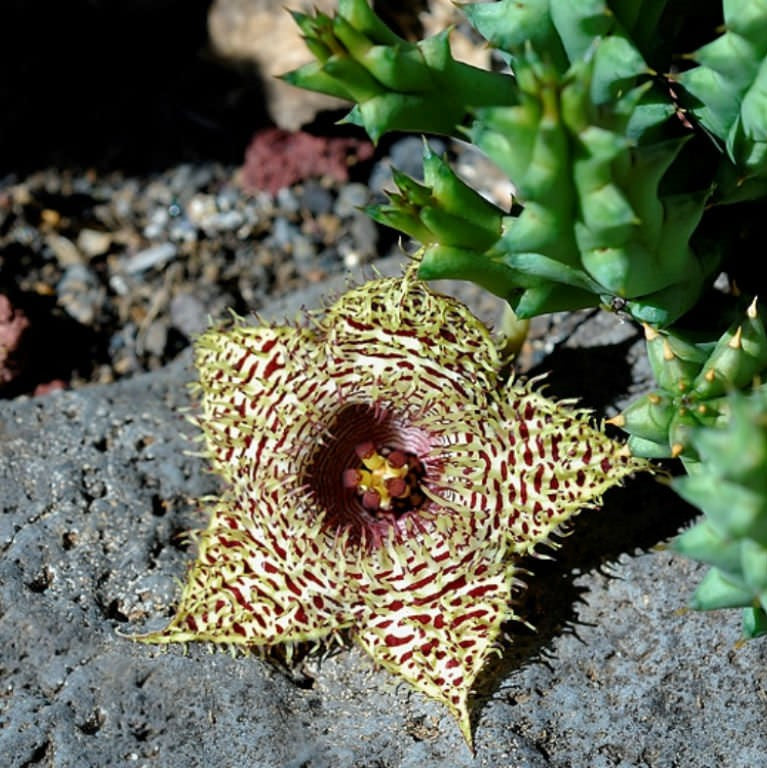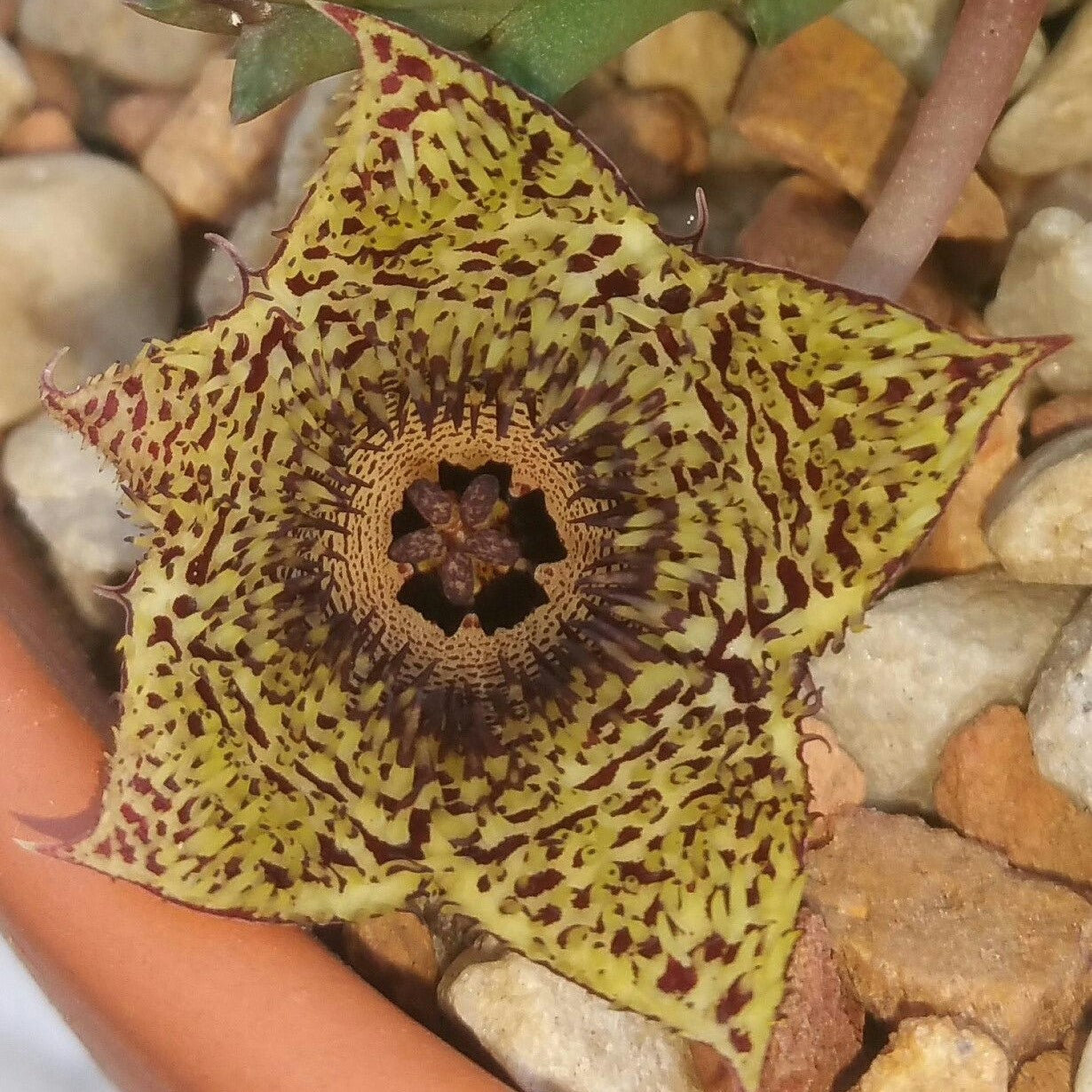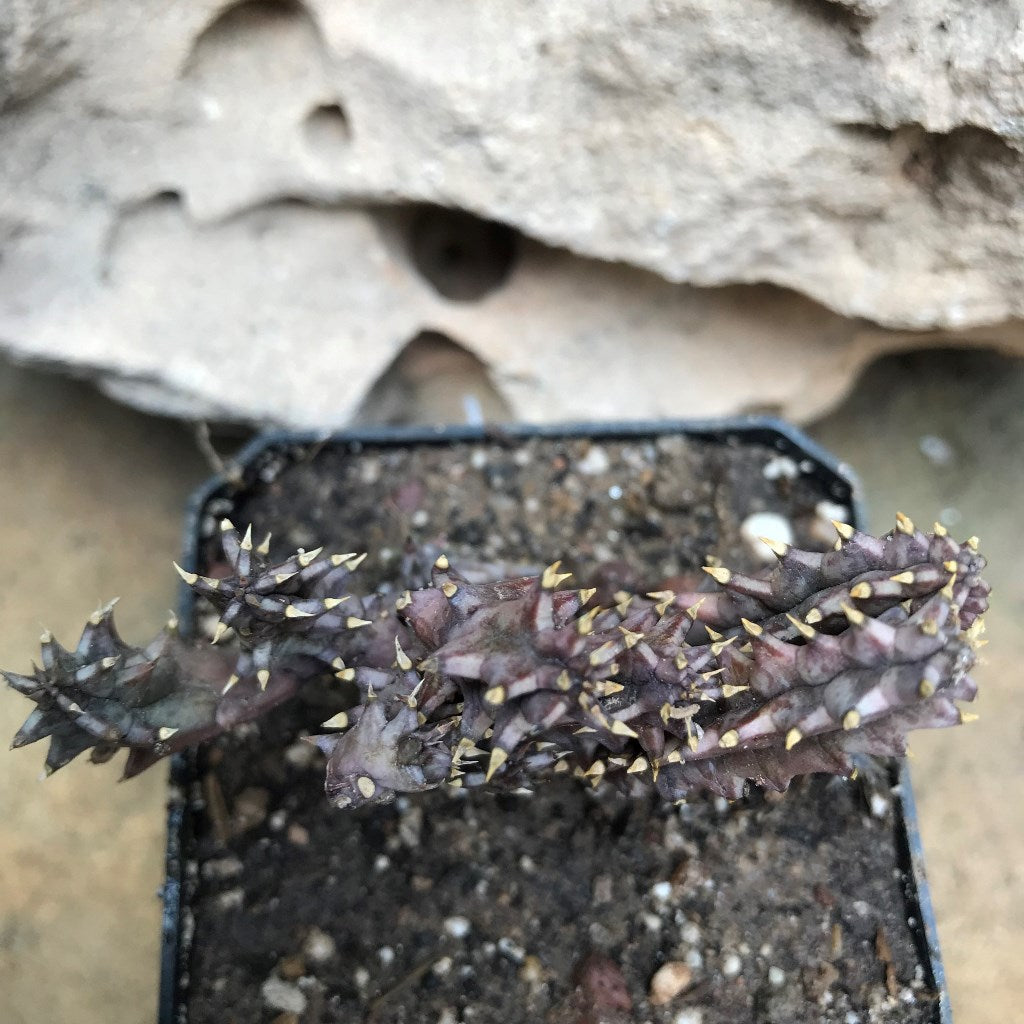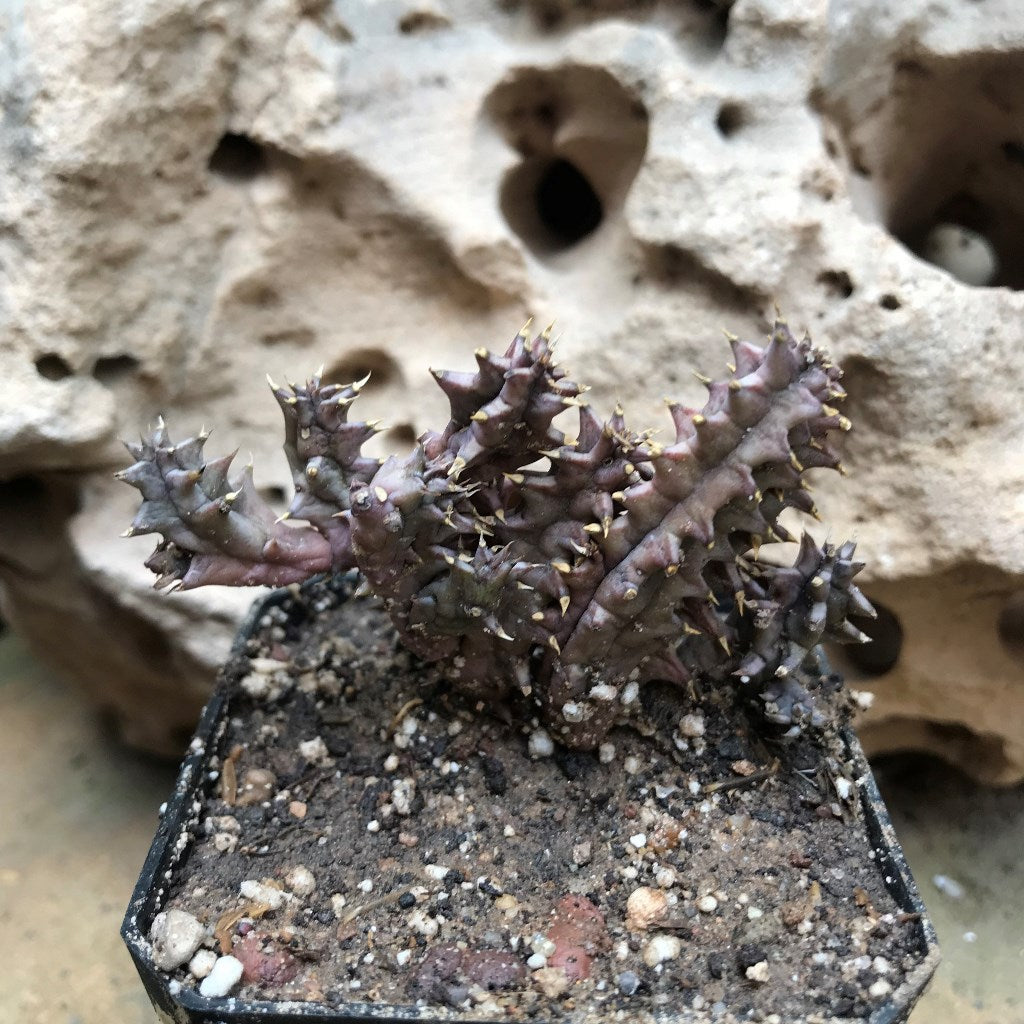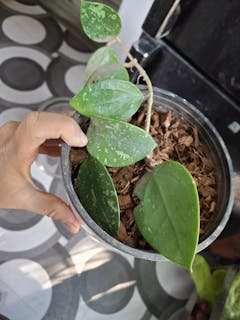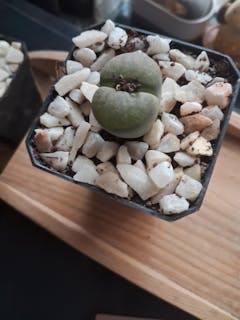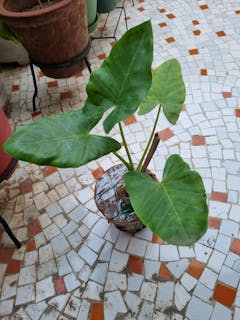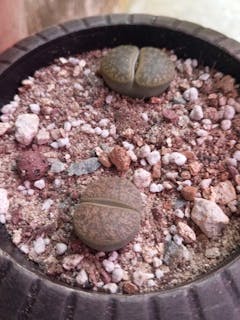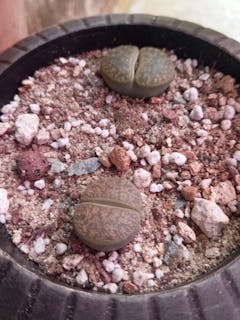Porcupine Huernia
Family
Asclepiadaceae
Origin
Zimbabwe
Description
Huernia hystrix is an evergreen, prostrate to erect, low-growing, succulent, leafless, up to 3 inches perennial plant. It forms a small clump of five-angled stems, usually up to 8 cm long and around 1cm in thick.
The stems are usually pale green, occasionally glaucous and tinted dull purple, with spaced, swollen tubercles along the stem ridges that are tipped with sharp conical teeth pointing outwards. The flower are borne in groups of 2 to 5, bell-shaped, pale yellow to cream, marked with crimson to maroon spots. They grow on long, hairless stalks from the axils of tubercles in lower stem parts.
Environment
Huernias prefer bright light or partial shade. In nature, they grow underneath shrubs or other plants. Too much sun causes stems to develop protective reddish or purple pigmentation and can actually scald the stems. Too little light leads to weak, thin growth with decreased flower production.These plants grow best between 10 and 27 C. Protect them from freezing weather..
Huernias require a potting mix with excellent drainage. A succulent plant mix of 50 percent perlite, 25 percent vermicompost and 25 percent sand helps prevent rotting and overwatering. Roots experience die back in cool-season dormancy, so plants grow best in shallow containers that allow the soil to dry out quickly. Using clay pots further helps soil from staying too wet. An underlayment of coarse gravel below the soil mix also improves drainage. In climates with damp cool summers, a layer of gravel between the plant and the soil mix also helps prevent the stems from staying too moist. Outdoor plantings do well in raised beds.
Landscape Use
Suitable for Container, Rock Garden & Xeriscaping

